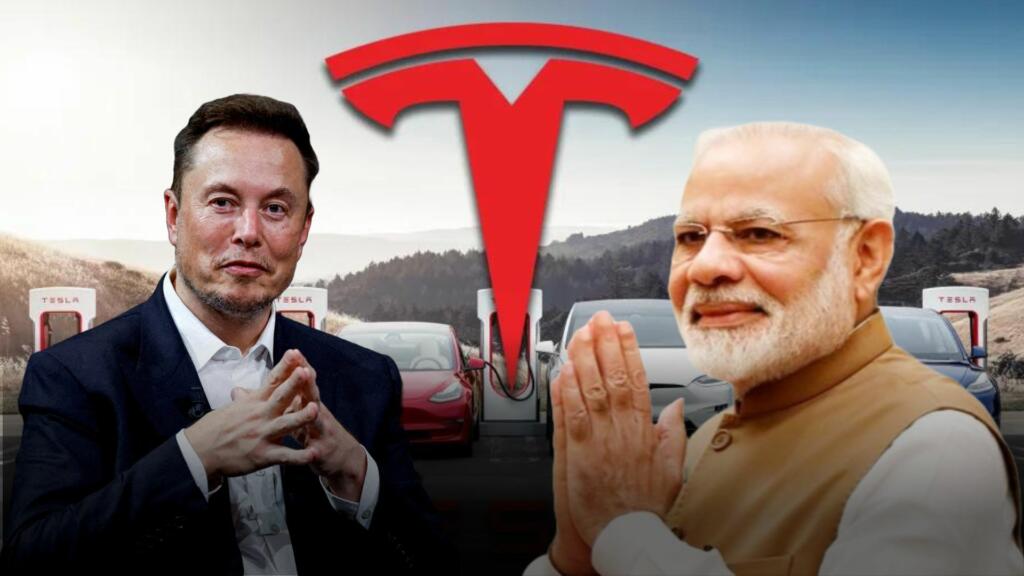In a monumental move that could redefine India’s electric vehicle (EV) landscape, global giant Tesla is reportedly in advanced talks to make a significant foray into the country. The company is contemplating an eye-watering investment of nearly $30 billion over the next five years, according to sources closely involved with Tesla’s official business plans. This potential development signals a game-changer for India’s burgeoning EV sector, with a substantial portion of the investment earmarked for immediate production of a new small car from an Indian plant, aiming to cater to the wider developing world.
Strategic Investment Breakdown
Approximately $3 billion is set aside for the direct production of a new small car, reflecting Tesla’s commitment to meeting the growing demands in developing countries. This move aligns with Tesla’s broader vision beyond being just an auto company, positioning itself as a tech powerhouse involved in critical minerals mining and refining, semiconductor production, and design. The ripple effect from Tesla’s comprehensive ecosystem could have enormous spillover benefits across various industries.
Furthermore, Tesla envisions investing $10 billion from other partners to support the manufacturing venture and an additional cumulative $15 billion in the battery industry ecosystem over the next five years. This multi-faceted investment approach underscores Tesla’s commitment to building a sustainable and robust EV ecosystem in India.
Coastal Plant Considerations
The location for Tesla’s potential plant in India is under careful consideration, with options including Haryana, Tamil Nadu, Maharashtra, and Gujarat. Given the company’s export-oriented plans, a coastal state in the west or south is likely to be the preferred choice. Tesla’s interest in India is not just a strategic diversification beyond China but also reflects Elon Musk’s admiration for India and Prime Minister Narendra Modi.
“Musk really admires what Modi has done for India and his energy. He spoke to Modi about his interest in Indian spirituality and meditation and expressed an interest in traveling there,” says a source familiar with Tesla’s thinking.
Potential “Suzuki Moment” and “Apple Plus Moment”
The impact of Tesla’s potential entry into India is being likened to a “Suzuki moment” for the country’s EV industry, drawing parallels with the Maruti-Suzuki small-car revolution in the 1980s. Additionally, it is referred to as an “Apple plus moment” for India’s manufacturing aspirations, highlighting how Tesla, unlike Apple, brings a comprehensive range of capabilities to the table, spanning technology, critical minerals, semiconductors, and design.
“If it works out, this will be the biggest foreign direct investment commitment in India. Tesla will invest $3 billion in the plant, and other partners in its manufacturing ecosystem will invest another $10 billion. In parallel, there will be another $5 billion investment in batteries that will grow to $15 billion. We are looking at a total of $30 billion,” affirms a source close to the company involved in project discussions.
Policy Environment and Tesla’s Commitment
As India moves closer to drafting a new EV policy, Tesla’s potential entry is contingent on a favorable policy environment, including a rebate in the current structure of import duty for foreign-made EVs. In response, Tesla plans to bring a limited number of its standard brands to compete in the Indian luxury car market while concurrently building and testing a charging ecosystem. Simultaneously, the company may invest in a factory in India to roll out the first small car within two years, with the facility completed within three years.
The pricing structure of the car is yet to be determined, but it is likely to be a more affordable model compared to traditional Teslas, catering to the demands of countries in Asia, Africa, and Latin America. This factory, with a high degree of locally made content, may partially serve the Indian market and significantly focus on exports.
Government Support and EV Adoption Goals
While Tesla has not officially commented on its specific plans for India, a senior government official emphasized that India would consider providing incentives to all players in the EV sector as part of its commitment to promoting EV adoption in the country. The Ministry of Road Transport and Highways has launched the EV30@2030 campaign, aiming for ambitious targets such as ensuring 30% of newly registered private cars, 40% of buses, 70% of commercial cars, and 80% of 2-wheelers and 3-wheelers will be electric by 2030.
Tesla’s investment in India aligns with the country’s goals on local manufacturing, combating the climate crisis, integrating into new global supply chains, and fostering a broader strategic partnership between India and the US.
Also Read: This report about “How affluent India is going to be” is just mind-numbing
Transformative Potential
If the negotiations and plans materialize, Tesla’s entry into India could be a transformative moment, injecting unprecedented investment, technological prowess, and global attention into the country’s burgeoning EV sector. The potential investment not only signals confidence in India’s capabilities but also positions the country as a key player in Tesla’s global expansion strategy.
As India navigates the challenges of drafting a new EV policy, the prospect of Tesla’s massive investment serves as a beacon of hope for the nation’s electric future. It not only underscores India’s attractiveness as a manufacturing hub but also highlights the collaborative potential between global industry leaders and the Indian government in driving sustainable and innovative solutions for the future. The next few years may witness a remarkable evolution in India’s automotive landscape, propelled by Tesla’s vision and commitment to a cleaner, greener future.
Also Watch:
